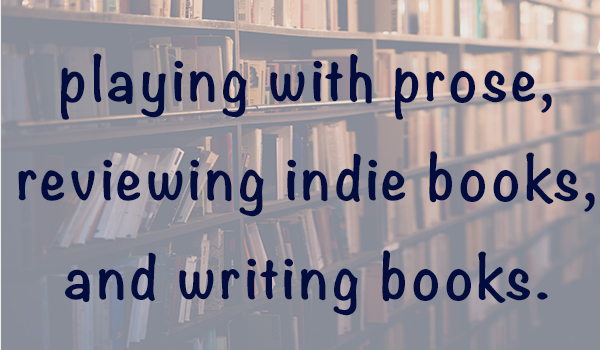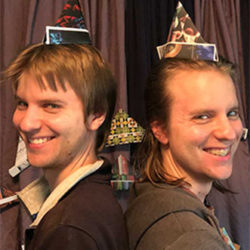
#18 Detective Joe on the Case
Salutation you various philosophical philistines. Today we have a piece titled ‘Detective Joe on the Case’ by 50k Or Bust on Writing.com (probably not their real name.)
Detective Joe stepped out of his squad car. He rested his arm across the top of the door frame and looked down the dusty ruts that lead away from him. The sun beat down on his back and glistened off the steel grey hair. He ran his fingers through it hoping the new cut didn’t stand on end from the action. He moved his other hand to the holster as he watched a dust cloud follow a car towards him.
There nothing grand to fix or improve in this paragraph, just the minor efficiency adjustments, so let’s begin.
First, ‘out of’ can often be replaced with ‘from’ and will generally read better since it’s one soft word instead of two hard words. (In this situation, ‘soft’ and ‘hard’ refer to the sound a word. ‘Out’ sounds hard because of the T, whereas ‘from’ lacks any sharp letter, meaning its sounds soft and tends to read smoother.) After that, I would combine the first and second sentences since they don’t flow particularly well with each other. This necessitates some basic juggling, but I’m sure we’ll survive (or at least you will, the strain exceeds my feeble intellect’s capabilities.) We’ll combine the sentences with an ‘and,’ then to avoid the ‘and’ echo, we’ll exchange the second ‘and’ for a comma and switch ‘looked’ to looking. This results in…
— Detective Joe stepped from his squad car and rested his arm across the top of the door frame, looking down the dusty ruts that lead away from him.—
But there’s more. I would switch the second ‘his’ to ‘an’ (thus avoiding the two ‘his’ in close proximity) and reduce ‘across the top of the’ to ‘atop.’ The image remains unchanged but we significantly reduce the clutter. This leaves us with…
— Detective Joe stepped from his squad car and rested an arm atop the door frame, looking down the dusty ruts that lead away from him.—
For the next sentence (the third) I must express deep umbrage with the use of ‘down.’ The words ‘down/up’ and their various disreputable relations are generally unnecessary; either because they simply don’t add much to the narrative or, more commonly, they’re just repeating an obvious fact, as in here. The sun is obviously above Joe, so it has to be beating down on him, which renders any mention of the fact pointless.
The next section has a pair of grammar errors; the ‘the’ in ‘the steel grey hair’ is probably saying something other than what the author intends, namely that Joe is shirtless and possessed of a rather hairy back. The ‘the’ should technically be a ‘his’, and (to continue the grammar hijinks) the ‘it’ in the subsequent sentence technically refers to the sun, which was the subject of the previous sentence, not Joe’s lustrous back hair. (‘steel grey’ should be hyphenated by the way.)
Ignoring those perfidious grammar…complications, we’ll resume with the phrase “from that action.” This phrase can be removed if we exchange ‘the new cut’ for ‘his new cut.’ (I don’t believe the two ‘his’ echo in this instance.)
For the final sentence (He moved his other hand to the holster as he watched a dust cloud follow a car towards him.) I would just delete ‘he watched.’ It is unnecessary to orient actions from the POV character’s perspective. That slight critique aside, this sentence does do something praiseworthy: it conveys its information in a way different from the way the reader would immediately describe it. This isn’t something a writer should twist their-self into knots to achieve, and most certainly not take to extremes, but it’s a good way to capture the reader’s attention and make the prose more interesting. (All of this provided one does not sacrifice legibility.)
All my edits:
— Detective Joe stepped from his squad car and rested an arm atop the door frame, looking down the dusty ruts that lead away from him. The sun beat down on his back and glistened off his steel grey hair. He ran his fingers through his new cut, hoping it didn’t stand on end, and moved his other hand to the holster as a dust cloud followed a car towards him.—
I combined the last two sentences for the sake of rhythm, and switched ‘it hoping the new cut’ to ‘his new cut’ to resolve the grammar and to remove a few words.
Paragraph 2
The car came to a stop and two federal agents stepped out and looked around the open field.
Again, just a few minor efficiency adjustments. ‘Stepped out’ can be exchanged for ‘emerged/exited’ or one of their other synonyms. And ‘looked around’ can be reduced to ‘examined/ inspected’ and whatnot. This sentence would probably benefit from the second ‘and’ swapping to a comma and the ensuing verb being changed to an ING for the sake of rhythm. We can also probably delete ‘open’ as that is mostly implied in the definition of ‘field.’
My edits:
—The car came to a stop and two federal agents emerged, inspecting the field.—
Paragraph 3-5 (combined because 3&4 are dialogue.)
“You alone?” one asked.
“You blind?” Joe answered.
They looked at each other and the silent one nodded. They shut their doors and took enough steps to put them a few feet in front of their car and from his.
No comment on the dialogue, it’s terse and mildly humorous. For the first sentence of the main paragraph, the only thing I would change is ‘looked at each other’ can be reduced to ‘exchanged glances.’
The second sentence, however, I condemn with unnecessary specificity. The author doesn’t need that many words to convey their core point. —They shut their doors and approached to within a few feet of his car— indicates largely the same information, leaving out only that they’re distantly in front of their car, which is unnecessary to express. If it’s relevant later on, it’s not something you need to foreshadow. If it’s not relevant, then it doesn’t provide any significant amount of color to the scene, and is thus of limited value.
It should be noted that the cars’ distance from one another is somewhat suspect. The ‘took enough steps’ seems to indicate some distance between them, but the agents and Joe were conversing in their normal voices. (So indicated by the lack of a ‘shouted’ modifier.)
Paragraph 6&& (combined due to 6’s brevity.)
Joe didn’t move.
They adjusted their stance a few times, then the talkative one spoke. “You know why we’re here.”
Mostly just grammar here. ‘Stance’ probably needs to be ‘stanceS’ since there’s two agents, and the period after ‘spoke’ needs to be a comma since ‘spoke’ is a speech designator. Grammar aside, I would toy with the concept of replacing ‘a few times’ with ‘briefly.’ The connotation remains unchanged, but you remove two words and (in my illustrious and always egregiously incorrect opinion) ‘briefly’ is snazzier than ‘few.’
All my edits:
Detective Joe stepped from his squad car and rested an arm atop the door frame, looking down the dusty ruts that lead away from him. The sun beat down on his back and glistened off his steel grey hair. He ran his fingers through his new cut, hoping it didn’t stand on end, and moved his other hand to the holster as a dust cloud followed a car towards him
The car came to a stop and two federal agents emerged, inspecting the field.
“You alone?” one asked.
“You blind?” Joe answered.
They exchanged glances and the silent one nodded. They shut their doors and approached to within a few feet of his car.
Joe didn’t move.
They adjusted their stances a few times, then the talkative one spoke, “You know why we’re here.”
That’s all for today. Au revoir ye turbulent trombones. If you like our content please consider subscribing. If you like what you’ve read, check out some of the author’s other work. https://www.writing.com/main/portfolio/view/thekindred

